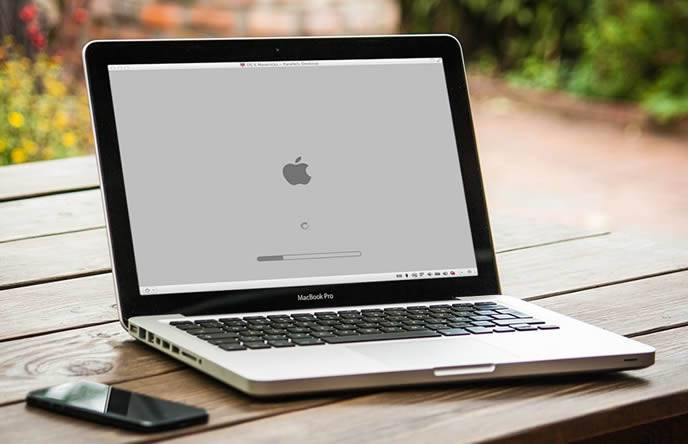If you are a Mac user, you may have noticed that sometimes your computer starts running slow. One of the reasons could be that the space on your Mac is almost full. However, it can be difficult to know which files or applications are taking up the most space. In this blog post, we will discuss how to find what’s taking space on a Mac using various methods.
Video Tutorial:
Why You Need to Find What’s Taking Space on Mac
If you are running out of space on your Mac, you may experience various issues such as sluggish performance, inability to install new programs, and data loss. Knowing which files or applications are taking up the most space on your computer can help you to free up space, optimize your system performance and prevent data loss.
Method 1: Using Finder to Find Large Files
Finder is the default file manager for Mac computers. You can use Finder to find large files that are taking up space on your Mac.
1. Open Finder by clicking on its icon on the Dock or by pressing Command + N on your keyboard.
2. Click on the “File” menu and select “Find”.
3. In the search bar, type in “size: >100MB” or any other size of your choice. This will show you all files on your Mac that are larger than 100MB.
4. Press “Enter” to initiate the search. Finder will show you all the files that match the search criteria.
Pros:
– Finder is a built-in file manager for Mac, and it’s free.
– It’s easy to use, and you can search for files by size, name, and date.
Cons:
– This method only shows you the largest files. It doesn’t tell you which applications or files are taking up most of your disk space.
Method 2: Using Storage Management to Find Large Files and Applications
Mac OS includes a built-in storage management tool that can help you find large files and applications.
1. Click on the Apple menu in the top-left corner of your screen and select “About This Mac”.
2. Click on the “Storage” tab.
3. Click on the “Manage” button.
4. You will see different categories of files, including “Applications”, “Documents”, “Photos”, “Movies”, and “Backup”. Click on each category to see which files and applications are taking up the most space.
5. To delete unwanted files, click on the file or application, and then click on the “Delete” button.
Pros:
– This method gives you a more detailed breakdown of files and applications that are taking up space on your Mac.
– You can easily delete files directly from the Storage Management tool.
Cons:
– Depending on the size of your disk, it may take a while for the storage management tool to calculate how much space you are using.
Method 3: Using Terminal to Find Large Files and Applications
If you are comfortable using the Terminal application, you can use it to find large files and applications on your Mac.
1. Open Terminal by clicking on its icon in the Utilities folder.
2. Type in the following command and press “Enter”: sudo du -h / | sort -hr | head -20
3. You will see a list of the largest files and applications on your Mac, sorted by size.
4. To delete unwanted files, navigate to the file’s location using the Finder, and then delete it.
Pros:
– This method is very powerful and can give you a more detailed breakdown of files that are taking up space on your Mac.
Cons:
– Terminal can be intimidating for some users, and you need to be careful when using it to avoid deleting important system files.
– This method requires some technical knowledge.
What to Do If You Can’t Find What’s Taking Space on Mac
If you can’t find what’s taking up space on your Mac, you can try the following fixes:
1. Delete unnecessary files and applications that you don’t need.
2. Move or backup large files to an external hard drive.
3. Use cleaning software such as CleanMyMac to scan for and delete unneeded files.
Bonus Tip
Regularly checking your Mac for files and applications that are taking up space can help you keep your computer running smoothly.
5 FAQs
Q1: Can deleting system files cause issues on my Mac?
A: Yes, deleting system files can cause issues on your Mac and may lead to instability or data loss. Only delete files that you are sure are not required by the OS.
Q2: Will deleting large files speed up my Mac?
A: Yes, deleting large files can help speed up your Mac and free up disk space.
Q3: Can I move my applications to an external hard drive to free up space?
A: Yes, you can move applications to an external hard drive, but the application may run slower than if it’s installed on your local drive.
Q4: Can I recover deleted files on Mac?
A: Yes, you can recover deleted files on Mac by using a data recovery software such as Disk Drill.
Q5: How often should I check what’s taking up space on my Mac?
A: It’s good to check what’s taking up space on your Mac at least once a month to ensure that your computer is running smoothly.
Final Thoughts
Knowing what’s taking up space on your Mac is essential for keeping it running smoothly and avoiding data loss. Using various methods such as Finder, Storage Management, and Terminal can help you identify which files and applications are taking up the most space on your Mac so that you can free up space and keep your computer running smoothly.{“@context”:”https://schema.org”,”@type”:”FAQPage”,”mainEntity”:[{“@type”:”Question”,”name”:” Can deleting system files cause issues on my Mac?”,”acceptedAnswer”:{“@type”:”Answer”,”text”:” Yes, deleting system files can cause issues on your Mac and may lead to instability or data loss. Only delete files that you are sure are not required by the OS.”}},{“@type”:”Question”,”name”:” Will deleting large files speed up my Mac?”,”acceptedAnswer”:{“@type”:”Answer”,”text”:” Yes, deleting large files can help speed up your Mac and free up disk space.”}},{“@type”:”Question”,”name”:” Can I move my applications to an external hard drive to free up space?”,”acceptedAnswer”:{“@type”:”Answer”,”text”:” Yes, you can move applications to an external hard drive, but the application may run slower than if it’s installed on your local drive.”}},{“@type”:”Question”,”name”:” Can I recover deleted files on Mac?”,”acceptedAnswer”:{“@type”:”Answer”,”text”:” Yes, you can recover deleted files on Mac by using a data recovery software such as Disk Drill.”}},{“@type”:”Question”,”name”:” How often should I check what’s taking up space on my Mac?”,”acceptedAnswer”:{“@type”:”Answer”,”text”:” It’s good to check what’s taking up space on your Mac at least once a month to ensure that your computer is running smoothly.”}}]}






